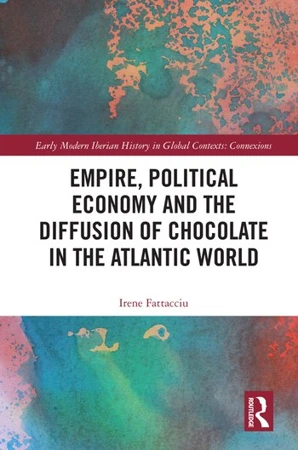Empire, Political Economy, and the Diffusion of Chocolate in the Atlantic World

Blurb
Chocolate is one of the most visible examples of how a deeply exotic consumer product penetrating our daily lives fascinated Europeans during the Early Modern period. Today, over fifty percent of the four million tons of cocoa produced globally come from Sub-Saharan Africa. Ecuadorian cocoa, on the other hand, is considered premium quality. Yet the fact that Ecuadorian cocoa is preferred by today's artisanal chocolate makers is one of history’s ironic turns. During the eighteenth century, production and exports of Ecuadorian cocoa dramatically expanded due to its fast growth rate, high yield and low price, though certainly not due to its qualities of taste. This book analyzes the transition of chocolate from an exotic curiosity to an Atlantic commodity. It shows how local, inter-regional, and Atlantic markets interacted with one another and with imperial political economies. It explains how these interactions, intertwined with the resilience of local artisanal production, promoted the partial democratization of chocolate consumption as well as economic growth.Book summary
This new book tells the story of how chocolate came to be the product that so many of us love today, while centering its colonial origins and its current structures of production that are dominated by US and European multinational corporations. Fattacciu brings us the uncomfortable truth of how production of chocolate has long been tainted with coerced and unethically sourced labour, by taking us on a journey of how cocoa became the first seed to cross the Atlantic from ex-Spanish colonies to Africa in an attempt by the Spanish colonizers to regain control over colonial trade, and journeying further to Western European consumers. She investigates the key moments of intersection between the various actors involved in chocolate’s successful trajectory over the years to explain the subsequent boom in chocolate consumption at the end of the 18th century. It gives us a great insight into colonial extraction, monopoly capitalism, and the democratization of a formerly exotic and luxury product.

